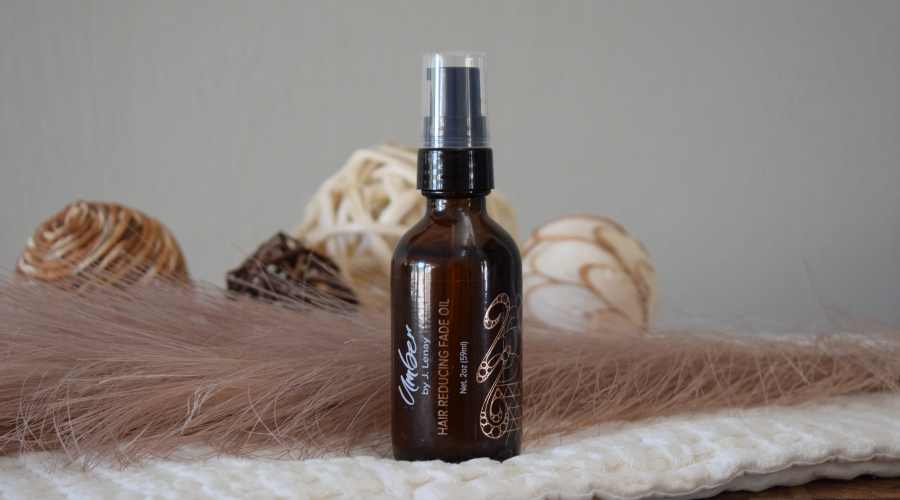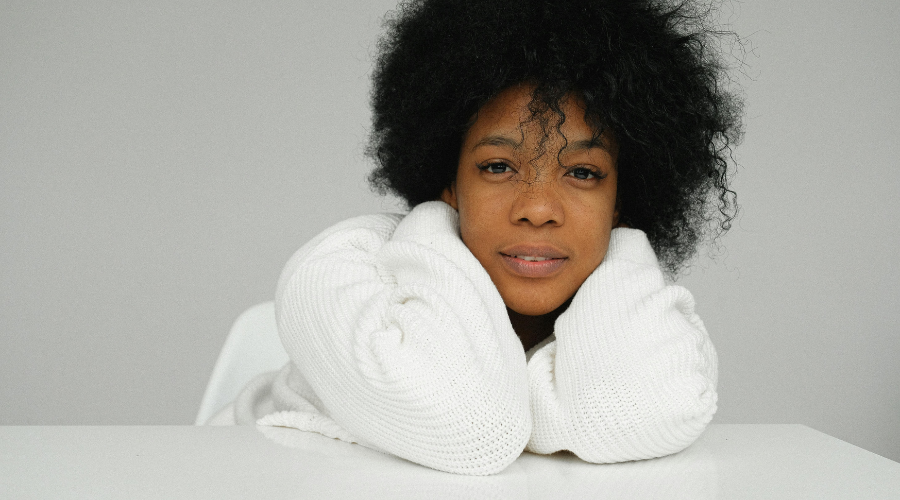You wake up, look in the mirror, and frown. Those dark, coarse hairs that have been slowly but steadily sprouting more and more are still there, on your chin, above your lips, along your jawline. You know you're not alone; hirsutism affects around 10 percent of women. But knowing that doesn't always make you feel any less self-conscious or abnormal.
Dealing with excess hair can take a toll on your self-esteem. In this article, we'll explore the psychological impact of hirsutism and provide helpful tips and resources for coping, so you can start reclaiming your confidence and get back to fully participating in life again. There is light at the end of the tunnel.
Understanding Hirsutism: What Is Excess Facial and Body Hair in Women?
Excess Hair Growth in Women
As a woman, having excess facial or body hair can be distressing. Hirsutism refers to male-pattern hair growth in women, meaning hair that grows on the face, chest, abdomen, back, and buttocks.
What Causes Hirsutism?
For most women, hirsutism results from excess production of androgens like testosterone. Polycystic ovary syndrome (PCOS) is a common cause where the ovaries produce too many androgens. Certain medications can also stimulate androgen production. Rare medical conditions like adrenal hyperplasia or ovarian tumors may lead to hirsutism as well.
How Hirsutism Impacts Self-Esteem
Having excess body hair often impacts a woman's self-esteem and body image. You may feel embarrassed or unattractive, and this can take a major psychological toll. Some women become very self-conscious and avoid intimate relationships or certain social situations. The good news is there are treatment options and coping strategies to help you feel better about yourself.
Learning to Accept Yourself
The first step is accepting yourself as you are. Your worth and femininity aren't defined by how much body hair you have. Focus on your positive qualities and the things that make you uniquely you. Surround yourself with supportive people who appreciate you for who you are. While treatment can help reduce excess hair, learning self-acceptance and self-love is so important for your well-being.

Seeking Support: You Are Not Alone in Your Struggle
Connecting with Others
The psychological effects of hirsutism can be isolating. Speaking with others who share your condition can help combat feelings of loneliness and difference. Seek out online communities or support groups in your area. Share your experiences, insights, and coping strategies. Let others support you, and offer your support in return.
Talking to Your Doctor
Don't suffer in silence. Speaking to your doctor about how hirsutism makes you feel can help you access resources and treatments. Your doctor may refer you to a therapist or counselor. Talk therapy and counseling can help you develop skills and strategies for coping with distress. Anxiety and depression are common experiences for those with hirsutism, so don't hesitate to discuss medication options with your doctor if needed.
Practicing Self-Care
Make time each day to engage in self-care. Getting enough sleep, eating healthy and exercising are all essential for your physical and mental well-being. Practice mindfulness, meditation or deep breathing to decrease stress and negative emotions. Do things you find meaningful or enjoyable, like a hobby, art project or spending time with loved ones. Take a break when you're feeling upset or overwhelmed. Be gentle with yourself and avoid harsh self-judgment.
While hirsutism can be difficult to live with, you have the power to build confidence from within and surround yourself with support. Don't lose hope - there are caring communities and medical resources to help you through. Focus on accepting and loving yourself as you are. You deserve to feel comfortable and at peace in your own skin.

Will Hirsutism Ever Go Away?
Hirsutism is often linked to an underlying hormonal imbalance, particularly an excess of androgens (male hormones). Whether hirsutism will go away depends on the underlying cause and the effectiveness of treatment strategies to manage it.
Some causes of hirsutism, such as polycystic ovary syndrome (PCOS) or certain adrenal gland disorders, may require ongoing management. In these cases, hirsutism can be a chronic condition. Treatments often focus on managing the condition that's causing the hormone imbalance. This can include lifestyle changes, such as diet and exercise, medications to regulate hormones and hair removal techniques.
In other cases, if hirsutism is caused by medication or a temporary hormonal change, it may resolve once the medication is stopped or the hormonal fluctuations settle.
It's important to consult a healthcare provider to pinpoint the exact cause of hirsutism and receive tailored treatment. A combination of medical therapies, lifestyle adjustments, and topical tools like a hair reduction oil can often successfully manage and reduce the symptoms of hirsutism, even if the predisposition to the condition remains.
Treatment Options for Managing Hirsutism
Medications
The most common medical treatments for hirsutism are anti-androgens and hormonal contraceptives. Anti-androgens, such as spironolactone, work by blocking the effects of androgens like testosterone that stimulate excess hair growth. Birth control pills contain estrogen and progestin, which can help balance hormone levels and reduce hirsutism. These medications may take several months of use to show significant improvements in hair growth.
Laser Hair Removal
Laser hair removal uses targeted light pulses to destroy the hair follicles, preventing regrowth. It requires multiple treatments to be effective but can provide long-lasting hair reduction. Laser works best on dark, coarse hair. It may cause minor side effects like skin irritation but is otherwise non-invasive. The downside is that laser hair removal tends to be expensive, painful, and time-consuming.
Electrolysis
Electrolysis is another option for permanent hair removal. It uses electric currents to destroy individual hair follicles. Electrolysis typically requires multiple treatments and can be painful, but is very effective at preventing regrowth. It works on all hair and skin types. However, electrolysis is usually the most expensive method of hair removal.
Hair Reduction Fade Oil
One of our favorite ways to manage hirsutism is with a hair reduction fade oil. A hair reduction oil may be a good option if you're looking for a more affordable and pain-free alternative to laser or electrolysis. For the best results, you'll need to apply twice daily for at least six weeks.
Natural Remedies
Some natural remedies, such as drinking spearmint tea, applying aloe vera gel, or taking saw palmetto supplements may help reduce mild hirsutism for some women. However, there is little evidence to support their effectiveness and results tend to be modest. Natural remedies are best used as a supplement other hair reduction methods.
Discuss the options with your doctor to develop a comprehensive treatment plan based on your symptoms, hair growth patterns, skin type, budget, and personal preferences. With time and consistency, you can get hirsutism under control and start to feel more confident in your own skin again.

Learning to Embrace Yourself: Tips for Building Confidence and Self-Love
Focus on Your Strengths
Rather than dwelling on the parts of yourself you can't change, turn your attention to the qualities that make you uniquely you. Think about your talents, skills, values, and accomplishments. Remind yourself of the good you bring to the world. Make a list of the things you like about yourself and refer to it often. The more you appreciate yourself for who you are, the less power Hirsutism will have over your self-esteem.
Practice Self-Compassion
Be gentle with yourself and avoid harsh self-criticism. Speak to yourself with the same kindness and empathy you would show a close friend. When you make a mistake or feel embarrassed by your appearance, offer yourself compassion instead of judgment. Say things like "This is difficult, but I will get through it. I'm not alone and there are kind people who will understand." Self-compassion is the antidote to shame and a vital ingredient for self-love.
Do Things That Boost Your Confidence
Engage in hobbies and activities that you find personally fulfilling and meaningful. Set small goals and acknowledge your progress and wins along the way. Do things that make you feel happy and confident from the inside out. Some options could be: exercising, art, music, volunteering, or pursuing a new skill or education. Achieving milestones in an area unrelated to your appearance can do wonders for your self-esteem.
Connect With a Support System
Talk to people you trust about how you're feeling instead of isolating yourself. Let close ones know what they can do to support you. You may also want to consider joining an online support group to connect with others dealing with similar struggles. There is power in shared experiences and knowing you're not alone. The love and encouragement you receive from your support system will help reinforce your own self-love.
With patience and practice, you absolutely can rise above the psychological impact of Hirsutism and learn to fully embrace who you are. Focus on your inherent worth and surround yourself with people who appreciate you for the amazing person you are.



